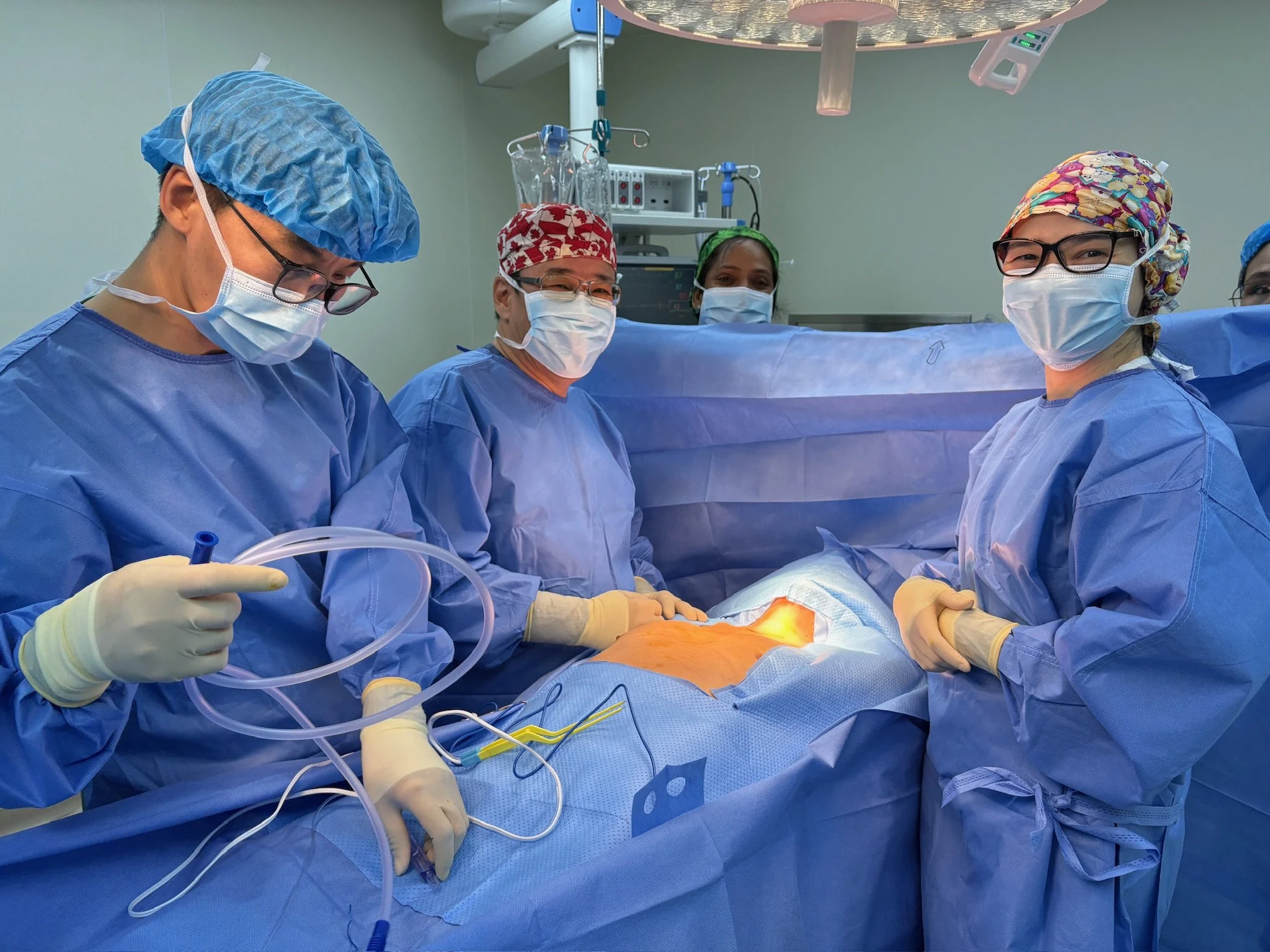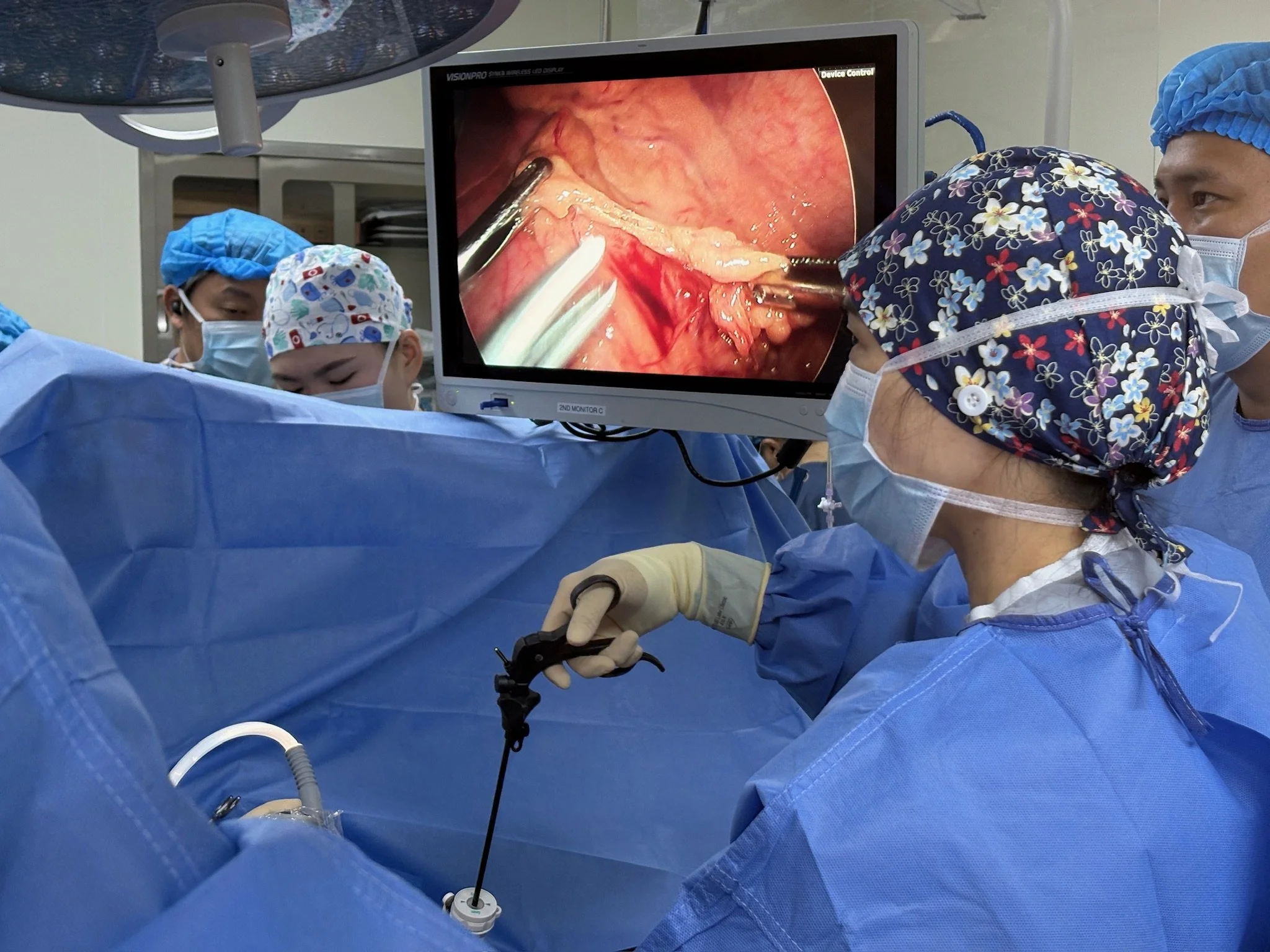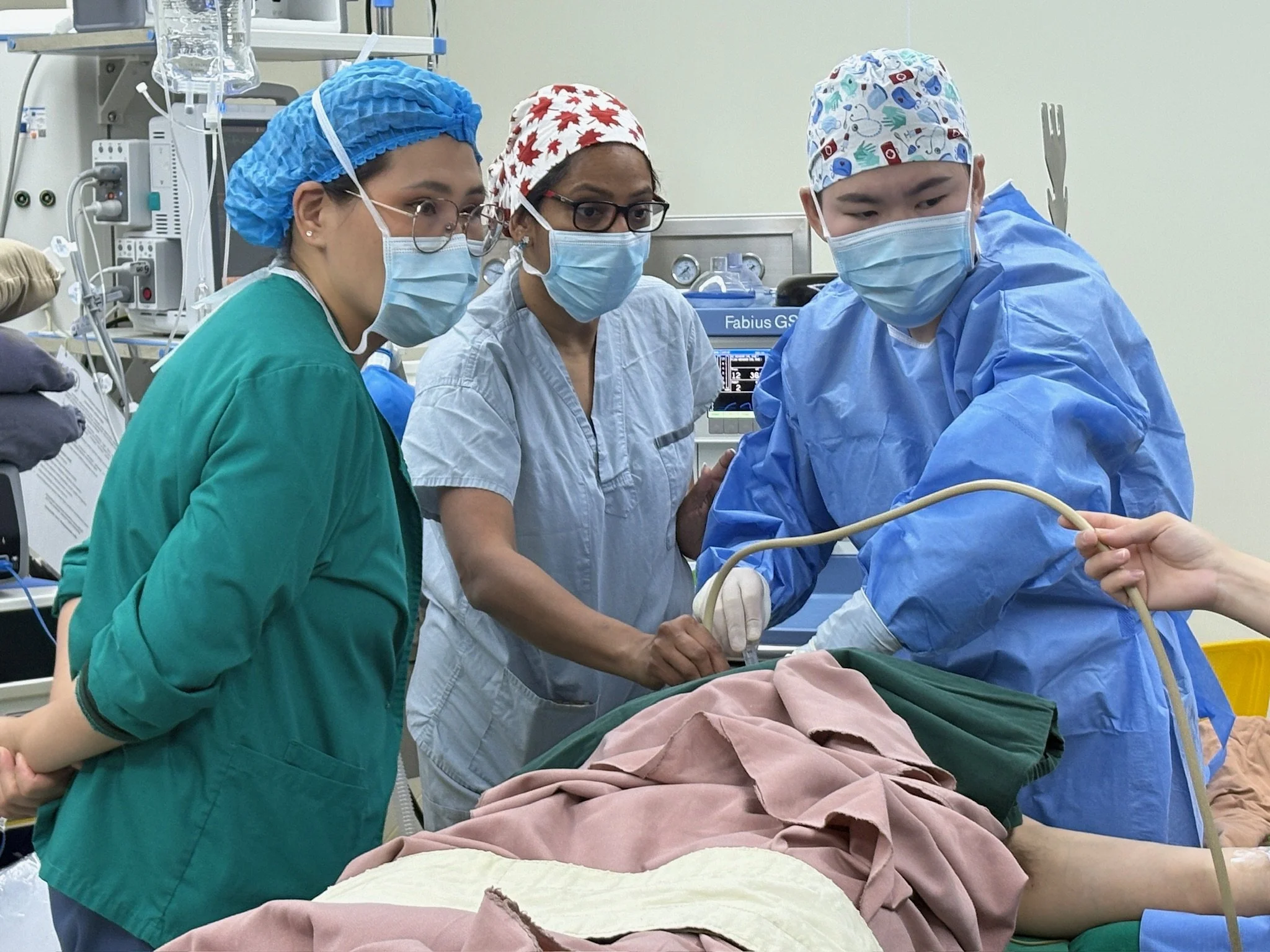Strengthening Surgical Collaboration in Mongolia: National Cancer Center (Part 2 of 2)
Dr. Sharon Ong’s visit to the National Cancer Center (NCC) presented unique opportunities and challenges. On the first day, the surgical team performed a minimally invasive esophagectomy. This marked a significant milestone, as the local surgeons successfully carried out the entire procedure from start to finish. The visiting surgeon contributed by offering practical guidance—suggesting adjustments in port placement and providing instruction on troubleshooting situations such as failure of the Orvil device with the EEA stapler. In such cases, the team was taught how to apply thoracoscopic suturing techniques to place the anvil freehand.
Another major achievement was the completion of the first-ever tracheal resection in Mongolia. This complex case demanded seamless cooperation between the surgical and anesthesia teams, both during the operation and throughout the perioperative period. The case highlighted the critical importance of communication, teamwork, and collaboration with the intensive care unit for postoperative management.
During the visit, the team also met with the new medical director of the NCC, a former hepatobiliary surgeon. He expressed strong interest in developing thoracic surgery at the center, aligning with the Ministry of Health’s broader mandate to strengthen cancer care in Mongolia.
Reflections and Considerations Going Forward
The NCC visit underscored the potential for growth in thoracic and oncologic surgery in Mongolia, while also revealing key areas for strategic development:
Lung Screening Programs: At present, many lung cancers diagnosed in Mongolia are already advanced and therefore not surgically resectable. Clarifying the government’s policy on lung cancer screening—particularly for smokers and high-risk populations—is essential. The NCC could play a pivotal role in leading or coordinating such initiatives.
Thoracic Surgical Training: As NCC continues to prioritize lung and esophageal cancer, the establishment of a dedicated thoracic surgical training program is critical. Key questions include the number of trainees per year, future employment opportunities, and how such a program could be integrated into national surgical training pathways.
Intraoperative Endoscopy: Expanding the use of endoscopy during thoracic operations will further strengthen surgical capacity and improve patient outcomes.
Nursing Expertise: Specialized nursing support is vital. Retaining nurses with thoracic or surgical expertise, rather than rotating them to other departments such as emergency or obstetrics, will ensure continuity of care and strengthen surgical outcomes.
The NCC visit demonstrated remarkable progress, most notably in the successful performance of advanced thoracic procedures. With continued collaboration, investment in training, and alignment with national health priorities, the center has the potential to become a regional leader in cancer and thoracic surgery.



